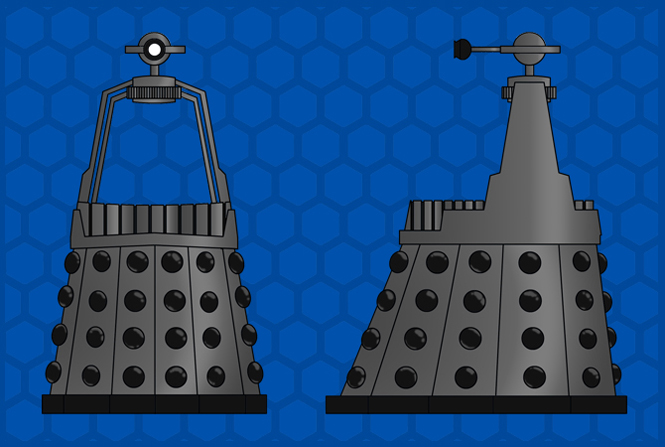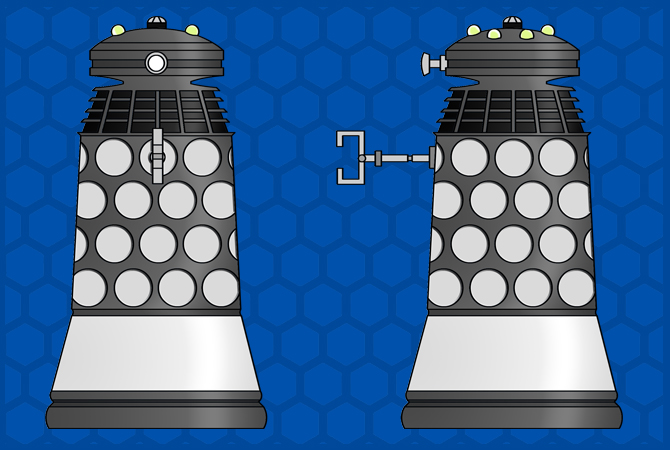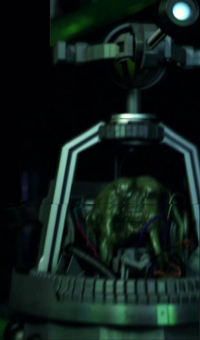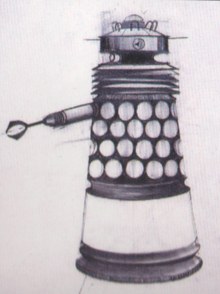of the Daleks
of the Daleks
of the Daleks
of the Daleks
of the Daleks
of the Daleks
Generation 00 – Initial mutants created by Davros housed in these casings.
Davros' experiments helped the scientist determine the final form of the Kaled (and potentially Thal) mutation. Using genetic and radiological research, it was possible to accelerate this process in test subjects; initially in the dead, but soon using live subjects. These early mutations soon expired, and it was determined that in order for the race to survive, some kind of life-support system would be required. This casing represented the first successful design for such a device. Elements of the casing were based around the state of the art systems used to keep Davros himself alive. This casing was primarily a survival mechanism to see if the mutations can be kept alive for extended periods.
A second prototype was developed that was a fully contained life-support capsule for its occupant. This casing was tubular in design and ultimately rejected as unsuitable. The beginnings of the familiar Dalek casing can be seen reflected in this concept.

The design of this casing was an extension of the life support chair that sustained Davros himself, indeed the lower half of the casing was identical to the scientist's chair. On top of this base, the mutant was exposed to the atmosphere of the laboratory that housed it. This was so that Davros could keep an eye on the mutation of the mutant itself. Extending around and above the mutant was a frame which formed an open cage around the creature. At the top of this was a rotating disc. From this disc, a further tube extended upwards, before ending on a gyroscope mechanism which contained an eye stalk. This stalk was controlled by the mutant's brain signals and the visual input from the camera in the "eye" was converted into electrical impulses that allowed the creature to see the world around it.
The internal workings of the casing were an improved version of those featured in Davros' chair. Indeed, having seen flaws in the system sustaining him, the scientist improved his own chair while developing the prototype casing. No nutrient tank featured in this casing – the mutant creature was fed from an external drip mechanism. This allowed Davros to easily control the nutrients being fed and observe how different mixes affected the creature.
Advanced life support systems in the base unit of the casing could be controlled remotely and the motive unit of the casing was de-activated to prevent the occupant from harming itself with uncontrolled movements. Power was fed to the casing through the rear, where two of the environment sensors were removed to allow the power feed to occur. There were no sockets for manipulation arms on this prototype casing.

The second design featured the familiar motive unit and skirt section, but these were narrower and more like a tapered cylinder in appearance. The motive unit was much deeper on this design. Sensor units surrounded the casing up to where the habitation unit lay. In front of this was a single appendage point with a claw attachment as standard. An air-filtration system followed and the casing was finished with a flat-dome section which included a short eye-stalk.
Raymond Cusick's designs for the original Dalek, I, Davros 04. Physical details presented in Davros DVD set in the Davros Connections documentary).

